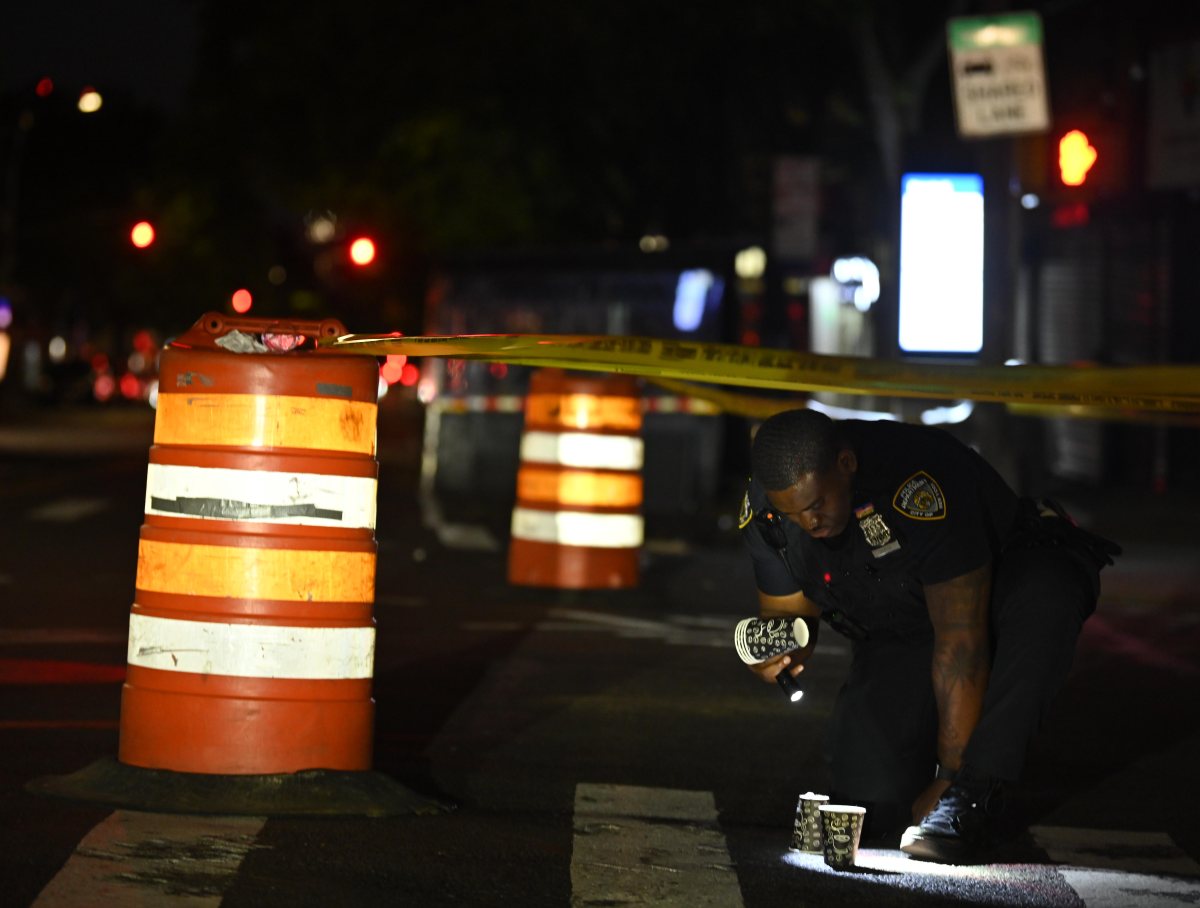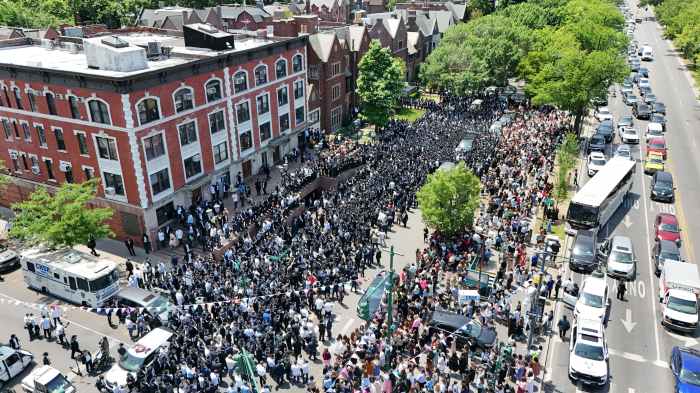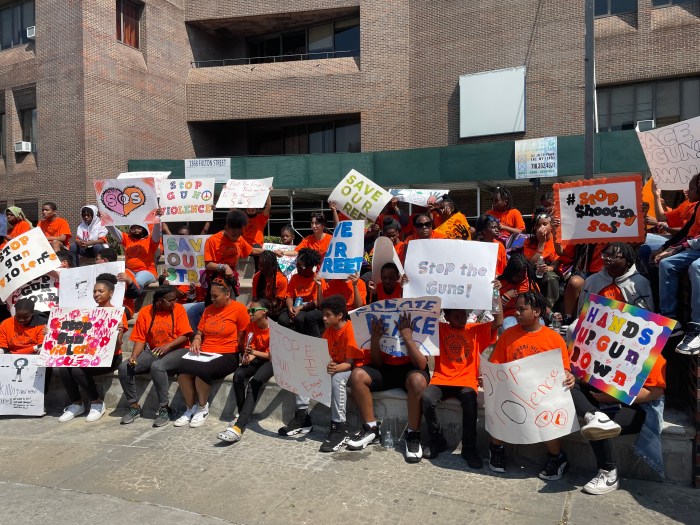A judge quashed an effort by real estate bigwigs to dismiss a lawsuit that would block two controversial Crown Heights developments from rising up near the Brooklyn Botanic Garden on Sept. 9 — setting the stage for a prolonged courtroom showdown that could determine the fate of the borough’s world-class horticultural museum, according to local activists.
“Justice was done today,” said Alicia Boyd, the lead activist behind anti-gentrification group Movement to Protect the People. “It was done because we, the people, will no longer allow the destruction of our community, or the destruction of our green spaces for the greed of developers.”
Boyd and her fellow activists — who are acting as their own lawyers — sued developer Cornell Realty Management and the city in April for allegedly failing to conduct a proper environmental review ahead of a City Council vote that gave developers permission to exceed zoning height regulations in building two 16-story towers at 931 Carroll St. and 40 Crown St., both of which are located a block away from the botanical garden.
Attorneys for the developer asked Brooklyn Supreme Court Justice Reginald Boddie to toss Boyd’s lawsuit on a technicality in August, claiming that Boyd and her fellow plaintiffs failed to properly serve them with papers in delivering them to a Cornell lawyer who did not have permission to receive them.
But Boddie wasn’t buying it and the Supreme Court justice rebuffed their request for dismissal, thereby preserving a temporary restraining order that bars construction while the court case plays out.
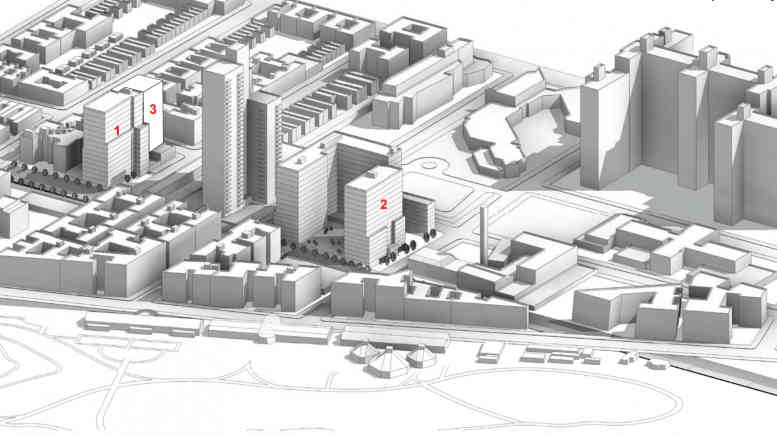
The Adams Street courtroom was particularly colorful during Monday’s proceedings, and Crown Heights community members packed the gallery wearing “flower power” T-shirts while waiting for Boddie’s decision.
“This judge does not believe how good we are. He doesn’t believe it,” said Crown Heights resident Julia Bryant. “We are stunning him. We are stunning this courthouse. And we won’t stop until they stop the work.”
When news of the proposed towers broke in 2017, it helped prove the Brooklyn Botanic Garden’s international appeal, as flower fans living as far away as the United Kingdoms flocked to sign a petition condemning the development, which they feared would bathe the horticultural preserve in shadow and damage its leafy occupants.
Executives at Brooklyn Botanic Garden would later take a notoriously neutral stance towards the Cornell development, claiming that fears over the project’s shadow impact were overblown.
However, garden honchos did come out strongly against another, much larger development proposed by Continuum Company at nearby 960 Franklin Ave., which one botanic garden green thumb famously claimed would block so much sunlight, half of the garden’s collection of rare and exotic plants could die as a result.
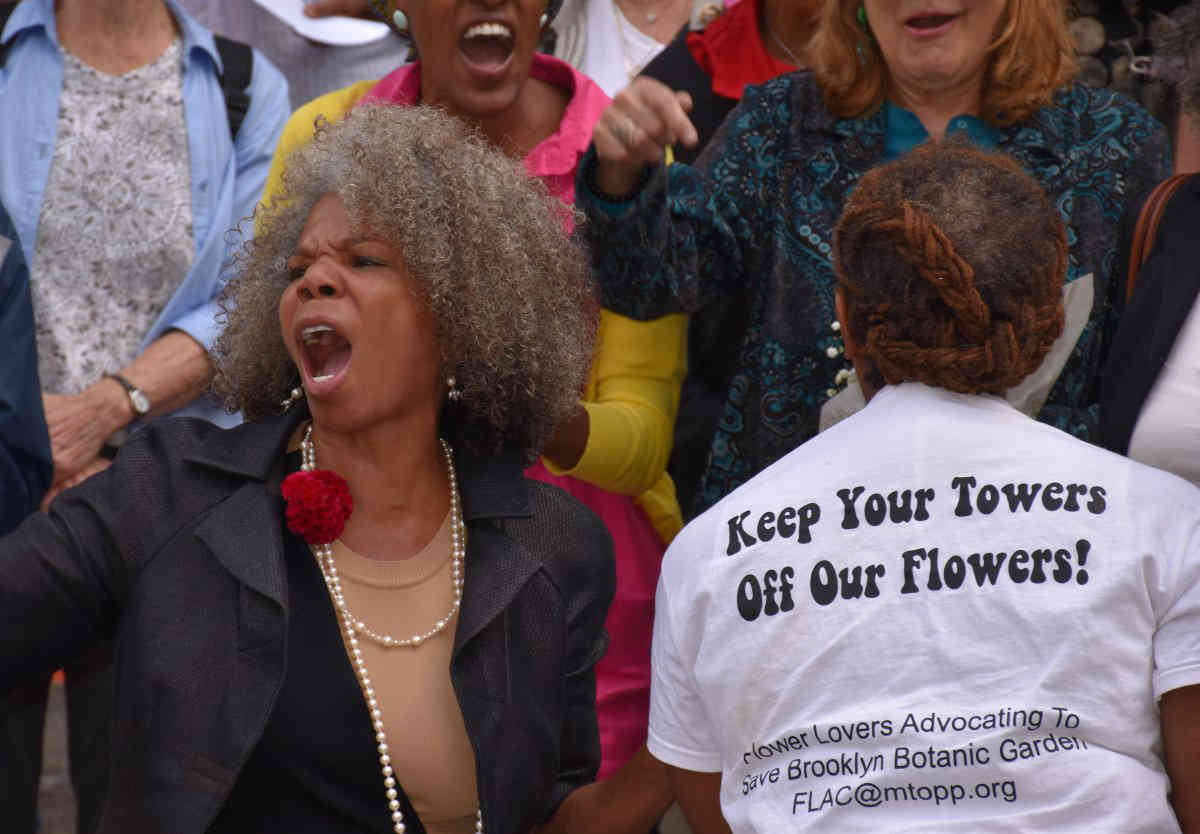
And activists have long argued that the smaller development is inexorably linked to the larger one, saying that if Cornell’s rezoning effort is allowed to succeed, it will pave the way for Continuum to net the buildings rights it needs to construct its two planned 39-story towers.
“This first development cannot go through, because the big one is behind it. The monster is behind it,” said Boyd. “And that monster will devastate us.”
The next court date is scheduled for Oct. 7 at 10 a.m. in room 456 of the Brooklyn Supreme Court building at 360 Adams St.
Attorneys for Cornell Realty Management did not immediately respond to a request for comment.
















